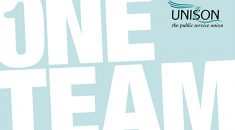UNISON, the UK’s largest union, is warning the government against rolling out personal health budgets, and calling for more scrutiny of the wider effects of the move. This must inlcude assessing the risk it poses to the founding principles of the NHS.
The union is concerned that the decision to roll out and fund personal health budgets was announced before proper evaluation of the pilots had taken place*.
Now that the pilot process has completed, it is clear that the process itself was problematic, with reports that several schemes failed to get off the ground because primary care trusts (PCTs) were understandably preoccupied with planning for their own abolition**. This throws doubt on how tough a test the pilot process would have been to justify a wider roll out.
Findings from the pilot schemes were also far from universally positive, said the union. Ongoing concerns were expressed about equity, topping up and user anxiety in particular***.
UNISON remains concerned that too little emphasis has been placed on the risks associated with personal health budgets – both for some patients and also for the NHS as a whole. There are still questions to be answered on what will happen when the money in a personal health budget runs out. This could encourage pressure for patients to be able to top-up their care with their own money, undermining the NHS founding principle of access to care being based on need rather than the ability to pay.
Christina McAnea, UNISON head of health, said:
“We are deeply concerned that the impacts of rolling out personal health budgets have not been properly assessed, and the risks have been ignored.
“The pilot schemes were problematic, and decisions to roll the scheme out further were taken before the pilots had been properly evaluated. This cannot be right. The findings of each pilot were also not universally positive – this cannot and should not be glossed over.
“There scheme could put at risk the founding principles of the NHS – part of the reason that our health service is one of our best loved institutions. We urge the government to put the brakes on and apply proper scrutiny to scheme before it is rolled out any further.”
Whilst the union supports many of the principles of more personalised care, such as early intervention, independent living and greater control for patients and service users in determining the services they need, it is concerned that the ongoing over-dependence on the personal budget element of personalisation is unlikely to achieve the benefits sought. It could also threaten some of the founding principles of the NHS.
There is also a very real issue of personal health budgets actually undermining the very choice they are designed to support. The experience from social care demonstrates that loss of critical mass in an existing service where users choose to spend their budgets elsewhere can lead to services such as home care centres closing, thereby depriving other users of this choice. The Audit Commission backed up this concern with a recent report suggesting that allowing patients to purchase their own services may put existing services commissioned under block contracts under threat. [Audit Commission, Financial management of personal budgets, October 2010]
Notes
*the “Liberating the NHS” white paper from July 2010 stated that the pilots would merely be used “to inform a wider, more general roll-out” [DH, Equity and Excellence: Liberating the NHS, p18] and the funding for the roll-out was announced before the evaluation had reported. [DH, “£1.5m available for people to spend on own care”, 25 Sept 2012]
** [Pulse, “Patients shun personal budget pilots”, 17 November 2010].
***See the first, second and fifth interim reports, To quote: “The need to provide more support for some groups of people raises the equity question again and whether some people will be intentionally ignored because of the cost implication of having to provide more support to certain people”. [DH, Experiences of implementing personal health budgets: 2nd interim report, Nov 2010]
ENDS


